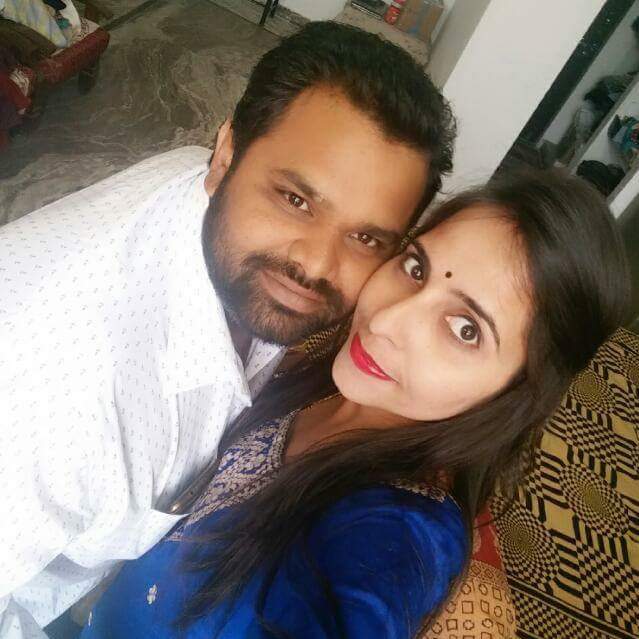Jaipur parents feel no remorse in honour killing of Keralite son-in-law
The recent Supreme Court order cancelling the bail granted to Mukesh Chaudhary, the co-accused in the murder of a Kerala youth, Amit Nair, has once again triggered a debate on brutal honour killings in India.Amit’s wife Mamta however has pledged to keep up her relentless battle to bring every one responsible for the brutal murder of her husband to justice.
;
The recent Supreme Court order cancelling the bail granted to Mukesh Chaudhary, the co-accused in the murder of a Kerala youth, Amit Nair, has once again triggered a debate on brutal honour killings in India.
Amit’s wife, Mamta, however, has pledged to keep up her relentless battle to bring every one responsible for the brutal murder of her husband to justice.
The murder of her husband, a civil engineer who had started a construction business, was engineered by her parents and brother and was executed by hired killers right in front of Mamta and Amit’s mother, Ramadevi.
The High Court of Rajasthan, however, had granted bail to Mukesh Chaudhary in December 2020 without reportedly considering the facts and circumstances of the case. An aggrieved Mamta approached the Supreme Court and an apex court bench headed by Chief Justice N.V. Ramana cancelled the bail, holding the lower court’s order as “unsustainable.”
Mamta’s story is tragic and follows a predictable pattern seen in honour killings. On May 17, 2017, at 8 am, Mamta’s life irrevocably changed. Her parents, Jeevan Ram Chaudhary and Bhagvani Devi, along with two strangers, entered her residence and asked to see her husband.
Also read: Honour killing: SC cancels bail to woman’s brother who killed husband
While Amit walked into the living room, Mamta’s parents started to force her to return home with them. They have been trying to persuade her since 2015, after they learnt of her marriage with Amit Nair. Jaipur-based Mamta and Amit from Kerala fell in love and married in 2011 and kept their marriage a secret from the former’s parents for four years.
Her family was furious when they learnt she had married ‘out of caste.’ They kept trying to intimidate and emotionally blackmail her for a long time. Essentially, they wanted her to break the marriage and save the ‘honour’ of the family and the community. Mamta refused and continued to live with Amit and his family.
On the fateful day, Amit told Ram Chaudhary and Bhagvani Devi that he would not stop Mamta if she wanted to return home with them. The next moment, the stranger pulled out a gun and fired at him. He fired three or four times at Amit in front of Mamta, who was seven months pregnant then.
Meanwhile, her parents tried to drag Mamta towards a waiting car. Mamta’s neighbours Sona Devi and her son Vikas Yadav, on hearing cries, rushed in. Due to this unexpected intervention, Mamta’s parents and the hired killers fled the spot. They left Mamta and escaped in a Honda Amaze car, which was later recovered from the residence of Mukesh Chaudhary, Mamta’s brother.

Also read: Court failed to deliver justice in Shankar honour killing case: activist Henri Tiphagne
Mamta‘s son is three-and-a-half years old now. Both live with Amit’s parents. Mamta, a law graduate, who has also completed her Master’s in Law from MJRP University Jaipur, told The Federal that she intended to ‘fight caste killings.’
Mamta’s case does not fall into the established framework of ‘honour killing.’ In fact, she comes from the Jat community which falls in the OBC category, while Amit belongs to the Nair community in Kerala which is considered to be an upper caste.
Mamta had tried to convince her family that Nairs belonged to the Savarna caste in Kerala. “I tried to tell them not because I have anything to do with this caste hierarchy, but I thought I could make them understand,” said Mamta.
“They were clueless about south India, the people, the culture or the kind of caste system practised here. For them, south India is an alien world, very different from what they know and what they are,” Mamta told The Federal.
Case records say Jeevan Ram Chaudhary, Bhagvani Devi, and Mukesh Chaudhary continued to threaten to kill Amit if Mamta stayed with him. They forced Mamta to sign a written agreement relinquishing all her rights over the ancestral property.
Unable to bear the torture from her parents, Mamta had filed a complaint at Karni Vihar police station in Jaipur on November 23, 2015. The complaint clearly mentioned how her family was constantly threatening to kill her husband.
The complaint was treated as a ‘family dispute.’ Mamta’s parents had ‘apologised’ to her then and the complaint was withdrawn.
Also read: Maruthi Rao, prime suspect in Miryalaguda honour killing, found dead
What was even more unfortunate was that Amit was not a stranger to Mamta’s family. Mukesh Chaudhary and Amit were friends. “They knew each other since class XI and they studied together. He was like a member of the family. A few years ago, Mukesh had an accident and it was Amit who nursed him back to health. Mamta’s parents too knew Amit,” said Smita Nair, Amit’s sister.
“What ‘honour’ have they gained finally? The family is broken; their only son is in jail, and they have caused irreversible damage to the life of their only daughter. What do people gain from caste pride? I am unable to understand,” said Smita in a conversation with The Federal.
Smita also pointed out that Mamta’s parents have not shown any remorse after the killing. “Someone who visited them in jail told us that they still believe that what they have done is right. They believe they have upheld the caste pride and set an example to society,” said Smita. According to Mamta’s parents, they have restored their ‘lost honour’ by killing their own son-in-law.
Kavitha Sreevasthava, an activist associated with PUCL, who has strongly supported Mamta in her legal battle told The Federal that this was a clear case of honour killing. But an honour killing need not always be connected only to caste, she added.
“It is more about a woman exercising her choice over her body and sexuality,” said Kavitha, adding that this crime had multiple layers of ‘pride’, which blinded them to commit such a heinous crime without a thought of the consequences.
